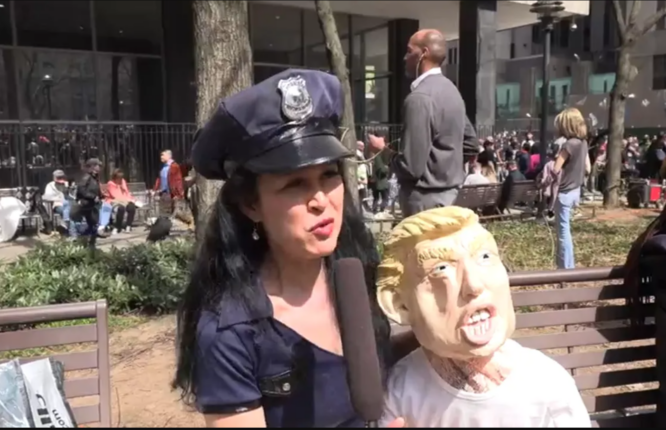Trump has never existed in the nation’s almost 250 years.
Trump, a millionaire real estate developer, gambling casino and resort owner, television personality, political contender, and one-term president, is loved and hated.
In 2016, he upset Hillary Clinton and started the most unstable administration in history.
He rules public and political life like no other. The media avidly awaits his next rhetorical outburst or verbal attack on his critics, dedicating uncountable broadcast hours and columns of newsprint to him.
His public statements on global and domestic issues sometimes veer into fantasy and scepticism.
He was impeached twice, indicted once, and convicted of sexual assault and defamation.
Yet, his vise-like grip on a significant segment of Republican voters makes him the clear frontrunner to win the party’s presidential nomination and, in some national surveys, defeat President Biden to become only the second person to win the presidency twice in non-consecutive elections.

Given his personal and professional shortcomings, his followers’ dedication is astounding.
Trump fans say “damn the legal torpedoes.”
His popularity ratings soared when the Manhattan District Attorney indicted him for business fraud, demonstrating his unwavering support.
Trump has no ideology. He insults Democrats and Republicans regardless of the subject.
“I am your retribution” and “I am your warrior” elicit visceral roars of approval from his rally crowds, who are frustrated, discontented, and angry at society’s elites, the wealthy, educated, and entitled who look down on others.
Trump’s promise to be “your warrior” helped them vent their wrath.
His admirers perceive a powerful and muscular personality who isn’t afraid to call out opponents’ hypocrisies in crude and frequently vulgar outbursts.
He is a reminder that there is more to America than New York and California, that the few thousand miles between them—so-called flyover country—is occupied by people who believe they’ve been cast aside, treated indifferently, robbed of a voice, and their values derided by a ruling class devoted to their personal wellbeing and superiority.
The movement has been called class warfare and anger politics. It’s true, but not entirely. The cultural war and the usage of “woke” to characterize a philosophy many find abhorrent are examples.
Trump has rode the national division over abortion rights, public school curriculum, book bans, gun control, crime, and immigration.
His America First and Make America Great Again populist platform has appealed to conservatives and many independents, promising a return to traditional values that many of them believe elites have dismissed as quaint, out of touch, and intellectually deficient.
Trump represents everything they want in a response: someone who can command national attention and fight the risks to their and the nation’s future.
They justify his rudeness, cringe-worthy personal belittling of others’ features and intelligence, and primary school playground nicknaming of his detractors.
He flaunts his narcissism. His social media posts are mostly ego-driven boasts and unsubstantiated prophecies of future successes.
Even his horrific breach of duty by failing to interfere in the storming of the U.S. Capitol on Jan. 6, 2021—a horrible mark on his administration that will never fade—hasn’t affected his core support.
The turbulence and tumult of his four years in the White House are overshadowed by his bond with his followers and his pledge to return the nation to its former splendor.
His commitment and dedication may be limited. Many top Republicans worry that President Biden, albeit vulnerable on virtually after issue and unable at this point to even gain majority support among Democrats, would frame his re-election campaign as a referendum on Trump rather than his Administration.

His 2020 campaign slogan, “Vote for me because I’m not him,” appears to be working again.
Can Biden survive a Trump campaign?
Trump’s rivals have struggled to unite. He leads Florida Gov. Ron DeSantis by as much as 40 points, while the rest of the field is stuck in single digits.
Of course, Trump may be indicted or other embarrassing material could emerge, changing the scene and reducing his popularity.
Biden’s public support is 40%, his management of stubborn inflation, an ongoing immigration issue, and growing crime rates is 30%, and two-thirds think the country is moving in the wrong way. His poor performance on problems is compounded by concerns about his physical and mental endurance at 81.
It is amazing that an incumbent president seeking re-election is the subject of open and continuous debate about whether he should be ousted or, if successful, depart office early.
Trump’s dedicated support can win the nomination, especially in a multi-candidate field, but not the White House. He may struggle to win over swing votes, independents, and Biden defectors.
Given the nation’s political unrest, the country may see his like again.
Stockton University’s William J. Hughes Center for Public Policy senior contributing analyst Carl Golden.





